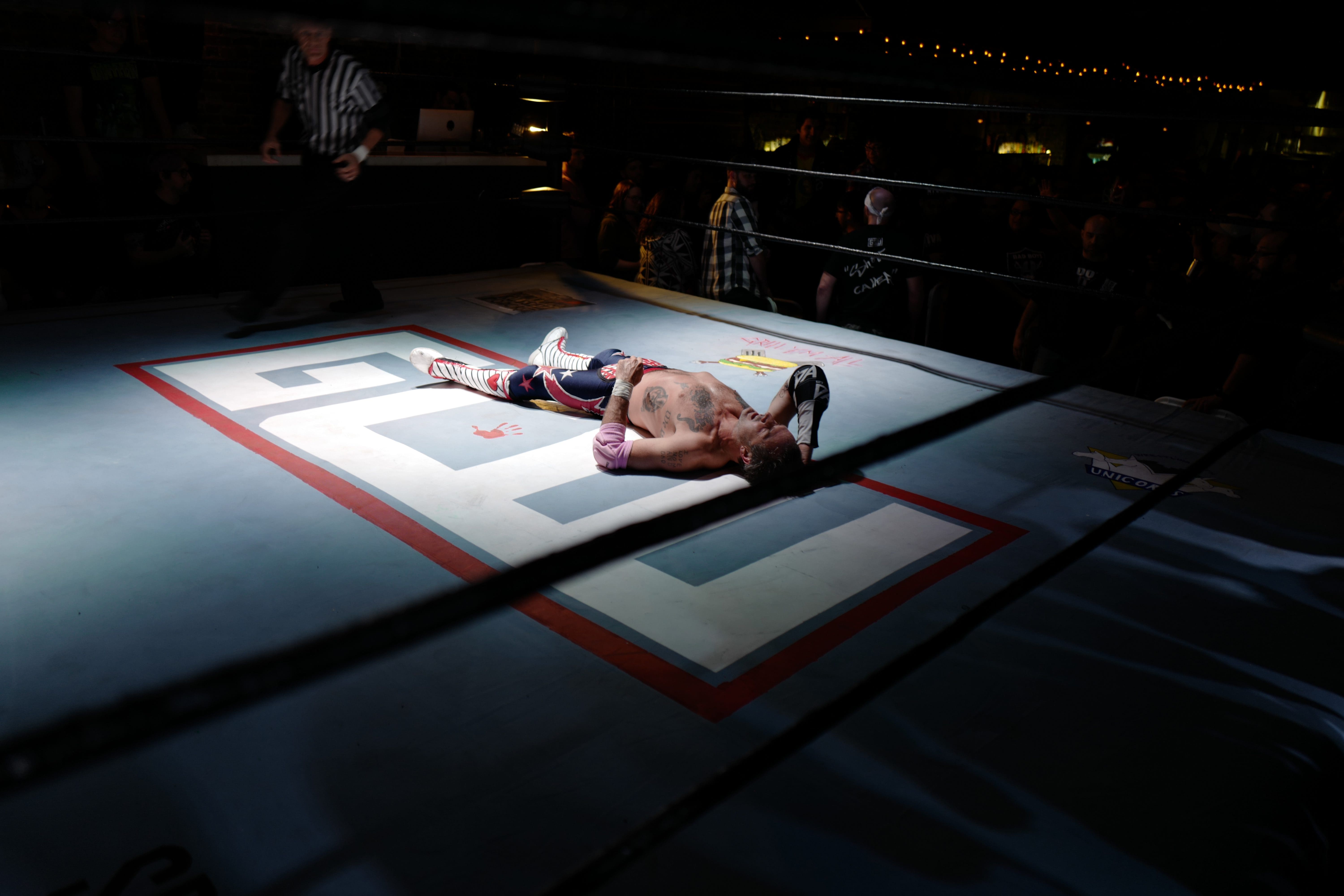
Every diehard wrestling fan out there has had the dream of winning the world title. Yes, no matter the age (or athletic ability) we’ve all had that vision of holding the belt over our head while soaking in the adulation from an endless sea of adoring fans. However, the part of that dream most of us never think about — what if everyone absolutely hated the idea of you win the title?
David Arquette, at the height of his acting popularity in 2000, was presented with the dream opportunity — be involved with WCW (World Championship Wrestling) as part of a cross promotion for the wrestling-centric comedy Ready to Rumble which he was starring in (AOL Time Warner owned both New Line Cinema which produced the film, and WCW at the time). As a lifelong wrestling fan, this was a dream scenario for the actor.
However, things went south quick when WCW decided to not just inject Arquette into a main event feud, but they decided to have him win the Heavyweight Title. This moment was and still is considered one of the worst moments in pro wrestling. So for the better part of the last two decades David Arquette has lived with the fall out of this horrible creative decision. He became became a pariah in the wrestling community, a community he still adores to this day.
You Cannot Kill David Arquette focuses on Arquette’s tumultuous and complex relationship with pro wrestling. Arquette is still deeply enamored with the larger-than-life presentation of pro wrestling but yet is still tortured by hatred that came from a decision someone else made nearly two decades before. The complexity of this relationship is at times embodied in the presence of his family — current wife Christina, ex-wife Courtney Cox, daughter Coco and sisters Rosanna and Patricia — who lovingly yet begrudingly support his decision to return to wrestling. To them his love for wrestling makes little sense given everything that’s happened to him (listening to Patricia and Rosanna to try explain wrestling is a beautiful cinematic moment), but at the same time they can’t deny a successful comeback in wrestling could be an important moment of closure for David.
Initially, as a viewer, Arquette’s decision to make a comeback makes little sense. Yet as the film goes on you find yourself believing in his cause. Arquette’s unabashed openness about his life is disarming. He’s willing show the highest and lowest parts of his life (the lowest parts are some of the more haunting parts of the film). His natural charisma and likability endears his near childlike obsession with pro wrestling to a non-wrestling audience. Halfway through the film you will find yourself heavily invested in this 50 year old plus actor who’s on the downside of his career, has everyone doubting him and is dealing with crippling anxiety. You find yourself, like his family, feeling that this comeback in wrestling might just be what saves him. It all sounds improbable, but there’s just something about Arquette that makes it work.
Yet there is one intrinsic problem with You Cannot Kill David Arquette. The documentary tends to lean too heavily into the fantastical elements of pro wrestling instead of its harsh realities. Some of the situations Arquette finds himself in during his comeback feel a bit too “heightened.” Arquette working a backyard wrestling show and getting roughed up barely trained yarders feels improbable. His sojourn to Mexico where he magically goes from wrestling novice to a fairly decent luchador in the matter of minutes is all a bit too neat. And the final act (which is hinted at in the opening) is essentially a wrestling angle played off as reality (then immediately defused as an angle) used to book end the film. It all feels a little too slick, a little too produced, and a little too perfect. In short, it’s a little disingenuous and these moments take you out the film.
You Cannot Kill David Arquette is a classic comeback story with an untraditional hero. David Arquette’s redemption story is something that both wrestling fans and those who wouldn’t watch wrestling even if you paid them can get behind. It’s a comeback story you’ve seen a million times — both in documentary and fictionalized form — but David Arquette sells it in such a weirdly charming manner that it feels fresh and wonderful.


Comments are closed.